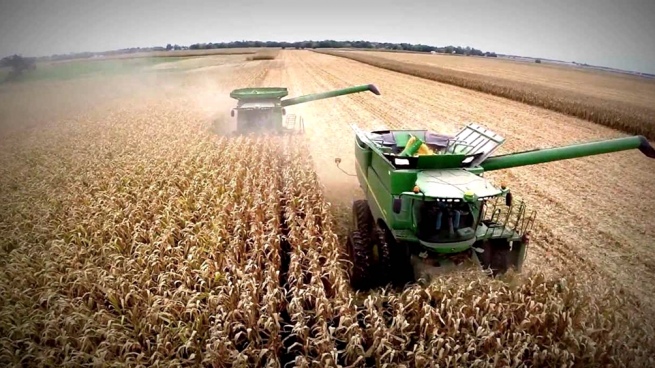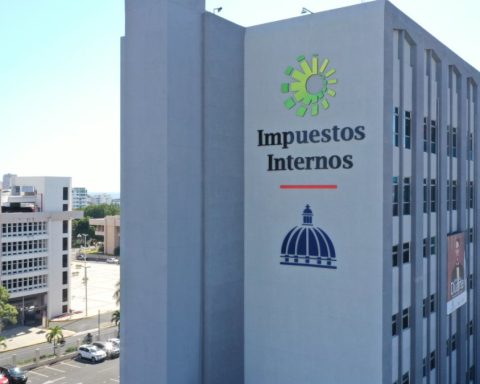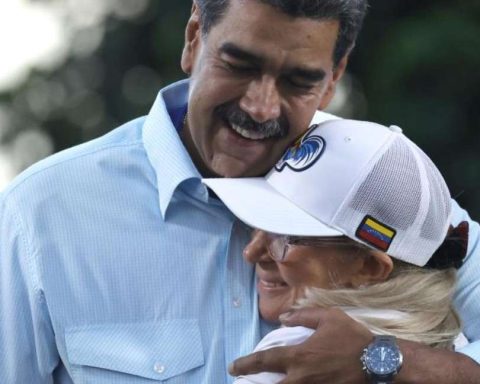The national government on Monday ruled out the possibility of implementing increases in withholdings on grain exports, while clarifying that it will seek to avoid a destabilizing effect on the cost of the food basket due to the sharp rise in commodity prices. due to the war between Ukraine and Russia.
The presidential spokeswoman, Gabriela Cerruti, said this afternoon that “a number of measures are being studied,” after which she clarified that “none of these measures is an increase in the withholding of corn, soybean or wheat production.”
In the same vein, Economy Minister Martín Guzmán stated that “an increase in export duties on grains, wheat, corn, sunflowers, soybeans and other grains is not being contemplated.”
During his presentation before a plenary session of Senate commissions to analyze the agreement with the IMF, Guzmán emphasized that they will seek “to have instruments to avoid having a destabilizing effect on the cost of the food basket of millions of Argentines and Argentines” as a result of the impact of the war between Ukraine and Russia on commodity prices.
“An opportunity presents itself to have a more favorable balance of payments, but the impact on the price of food is significant and it is something that has been seen in the last three weeks,” said Guzmán, who maintained that “the Government has limited instruments and always seeks to reach agreements first in order to be able to ensure that this shock, which for the economy as a whole can be positive, does not result in pressure on the price of food that harms millions of Argentines.
On the other hand, he recalled that “work is being done with the trusts, looking for voluntary contributions that can be used to achieve a gap between the evolution of the international price and that of the domestic price of food.”
However, He emphasized that he is facing “a shock of a magnitude that is difficult to find precedents in a long time”, therefore, “the decisions that are made must take into account the nature of the problem” and that “we always seek to achieve balance between the incentives for production and the impact on internal inflation.”
This Sunday, the national government announced the decision to suspend the Registry of Sworn Declarations of Sale Abroad (DJVE) for exports of soybean meal and oil, among other tariff positions of the oilseed.
This Monday, President Alberto Fernández met with the Minister of Agriculture, Julián Domínguez; with whom he had also held a meeting over the weekend, in addition to other ministers from the economic area, including the head of the Treasury Palace, Martín Guzmán; the Minister of Productive Development, Matías Kulfas; and the Secretary of Commerce, Roberto Feletti.
There they analyzed an anti-inflationary package that could be launched in the coming days, which could include the expansion of prices maintained by sectors to guarantee production; maximum prices for essential products, such as flour; and modify the decree of the manufactured subsidy for the export of soybean oil and flour from 31 to 33%, to expand the trust of around US$ 450 million for wheat, in a possible agreement with the industrialists of the sector to maintain a price support.
On this point, the Government clarified that there is a “special promotion to pay less for manufactured products that can be temporarily suspended” and indicated that “withholdings are raised by law.”
“We have to understand that the economic consequences of the war have already reached Argentina,” Cerruti exemplified in relation to the lack of oil in various parts of the world and the consequent increases in international prices; and he assured that “the president’s concern is to stop these rises that occur in a global context.”
repercussions
In the morning, in dialogue with FM Play Urbana, the president of the Chamber of Deputies, Sergio Massahad pointed out that “what has to do with the differential in withholdings on industrialized exports is under discussion” and clarified that the Government is discussing “alternatives” with the private sector so that the effects caused by Russia’s invasion of Ukraine in the prices of raw materials “impact as little as possible on people’s tables”.
For its part, the national deputy of the province of Buenos Aires for the Front of All (FdT) Victoria Tolosa Paz He said that the aim is to “protect consumption and the domestic price of food” in a “more than complex” international context.
Meanwhile, the Cereals and Trade Exchanges expressed their concern about the consequences of the suspension of soybean oil and meal exports and stated that a potential increase in withholdings will encourage “de-industrialization, discourage production and curb the entry of currency from one of the sectors that contributes the most to the country’s economy”.
For its part, the vice-president of the Argentine Agrarian Federation (FAA), Elvio Guía, He assured that the measure constitutes “a patch” that does not solve the problem of inflation and that “the most appropriate thing would be to return VAT on food for all Universal Assignment cards and for retirees.”
At the same time, former FAA head Eduardo Buzzi told Télam that an increase in withholdings on soybean meal and oil exports “would only affect the six large companies that do the soybean processing business; it would not directly affect the producers. have a monopolistic position, to lower prices for producers”.
Pedro Peretti, former director of the entitytold Télam Radio that the measure is “very convenient and timely given that the world is in a war situation and this has impacted the production of commodities.”

















